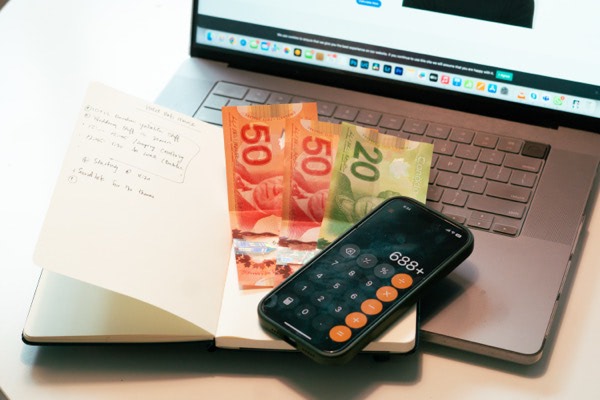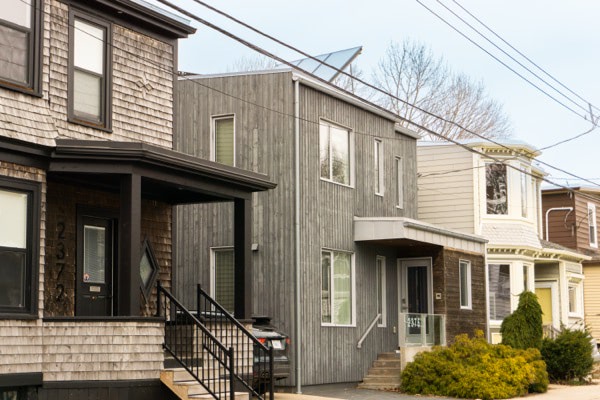How fast can you pay your mortgage off? Can you speed up the process? Here’s what you need to know!

The costs to expect when buying a home
Costs to expect
Every day we stop at a coffee shop for a morning cup of coffee. We order a grande cappuccino-espresso, steamed milk, foam. How much are we charged, though? A grande cappuccino costs us on average $3.65. We generally don’t think about the cost breakdown of a cup of coffee, but it might surprise you.
The cost of the coffee is only $0.16, cup and lid are $0.32, and milk $0.16. A larger portion goes to the rent and barista that made your drink- $1.31 and $1.10, respectively. The actual profit off of that simple coffee is only around $0.60. The breakdown of a grande cappuccino is astonishing. All those little things – coffee, milk, labor, rent- add up to one hefty price tag. There are many costs involved when purchasing a home. Little costs here and there add up to a bigger price tag. Understanding the costs involved is an important part of buying a home. In this post, we talk about the costs to expect when buying a home.
Closing costs
Closing costs are the costs you pay when the sale of the property closes. When looking at a home priced at $300,000 a buyer should plan for roughly $9,000 in closing costs. The closing costs are usually the administrative costs and the legal costs of buying a home. They include the land transfer tax, the title insurance, the oil adjustment, and any other legal fees.
Land transfer and legal fees
Legal fees associated with buying a property are some of the one-time costs. The land transfer tax, or deed transfer, is a percentage of the purchase price of the house. The percentage varies per province and municipality, with Nova Scotia varying from 0.5 per cent to 1.5 per cent. The average home buyer in Nova Scotia can expect the deed transfer to cost around $4,500. Title insurance is the policy that protects the home owner against problems in home ownership and the title of the home. This fee is usually wrapped into the legal fees associated with buying a property. Alone, title insurance is a one-time fee averaging between $125-$325. Other one time legal costs can bring the total for legal fees up to $700.
Fuel adjustment
Depending on the property and source of heating, you may be required to pay for the oil or fuel adjustment. Commonly, sellers will fill the tanks before the closing of the property. Home buyers will “buy” the full tank from the seller of the property. The cost of the fuel adjustment averages around $900. The cost, however, will vary depending on the source of heating but will be accounted for in the closing costs of the property.
Expect the unexpected
Buyers should also have a buffer in place for any unforeseen costs during the closing of a property. It’s never a bad idea to prepare and set aside some funds in case there’s an unexpected cost when closing. This buffer can be used for special assessments that may be required or major repairs. Rarely, a condominium may require a special assessment of the property, which the buffer will help pay for. Having a buffer can also help cover any association or condominium fees that are associated with moving into the community. Moreover, repairs associated with the inspection may need attention. Buyers should never expect to buy a property with zero problems. There are usually a few minor fixes that may need to be tended to that a buffer can help cover.
Property taxes
Property taxes are determined as a percentage of the value of your home. The percentage varies by each province and municipality, with Halifax averaging around 1.25 per cent ($1,250) for each $100,000 of assessed value. For a home valued at $300,000 in Halifax, homeowners would pay around $3,750 in property taxes each year. When buying a home, you may need to reimburse the seller for a portion of the property tax that they paid for the term. Home owners pay property taxes semi-annually in April and October. A home buyer would be required to pay around $750 for the property tax adjustment for the given term.
Lenders allow borrowers to set up an automatic payment plan to help pay for property taxes. Borrowers can set up a payment plan that automatically makes a payment every month. This can be wrapped up in the mortgage payment, so you’ll barely notice. The lender will put the money in a separate account that they will use to pay the taxes once a year.
It helps to plan ahead
The costs of buying a home can seem daunting. Alone, $300 here and $500 there doesn’t seem too bad. Together, those costs can add up quickly. However, when breaking up the payments into more manageable amounts, it doesn’t seem as daunting. Borrowing money from your RRSP or saving early for the down payment can alleviate some stress. Doing a couple “test runs” of making monthly payments into a savings account allows you to better prepare for owning a home. These monthly test runs can then be used to cover the closing costs upon buying the property. Rolling the cost of mortgage insurance and property taxes into the monthly mortgage payment will make it slightly higher, but more manageable overall. It reduces the risk of not saving up enough at the end of the year or closing of the mortgage.
Just like the costs involved in a grande cappuccino, the little costs of buying a home can add up. To read more about the hidden costs to expect when buying a home, jump on over to our previous blog post here! With the help of our mortgage professionals, the costs of buying a home don’t have to seem as daunting. Give us a call at Clinton Wilkins Mortgage Team to speak to one of our experts. You can reach us at 902-482-2770 or get in touch with us here!


